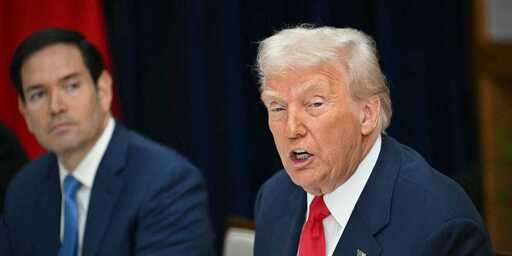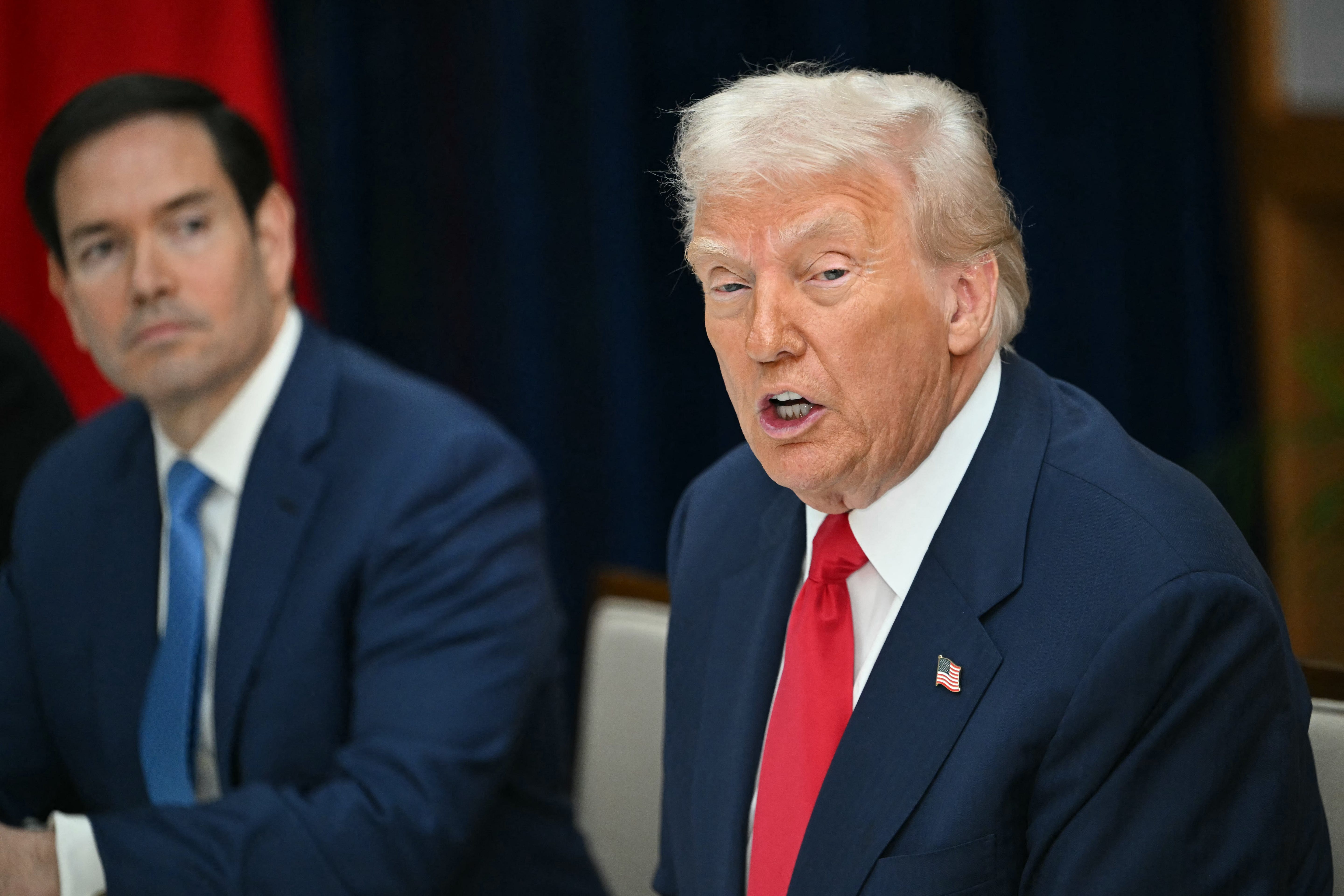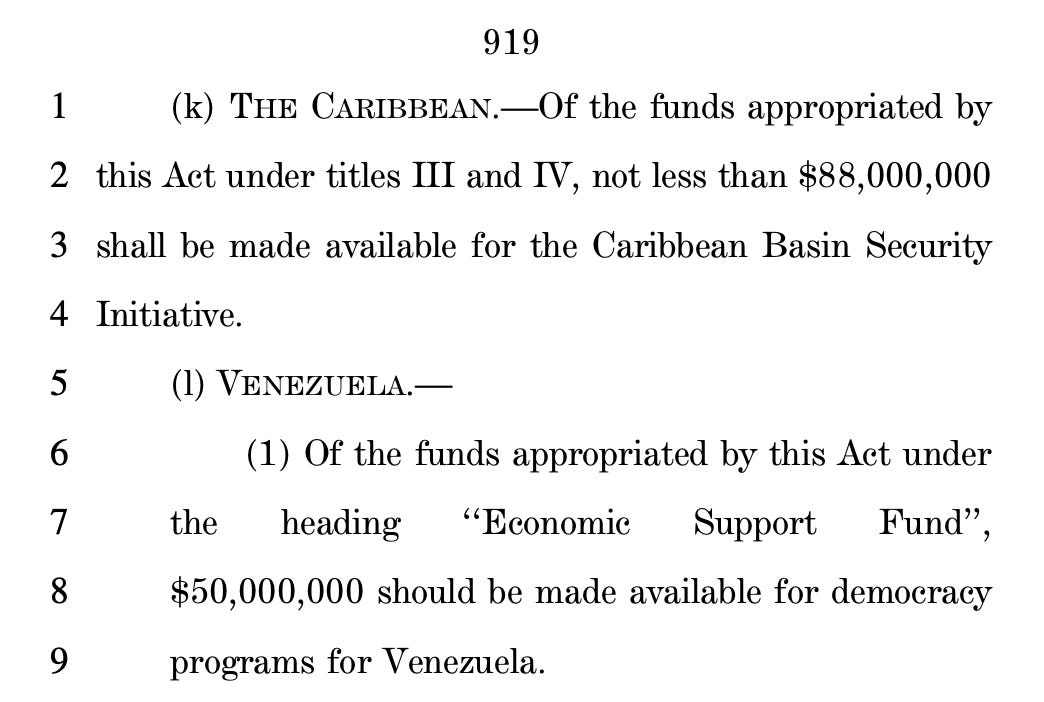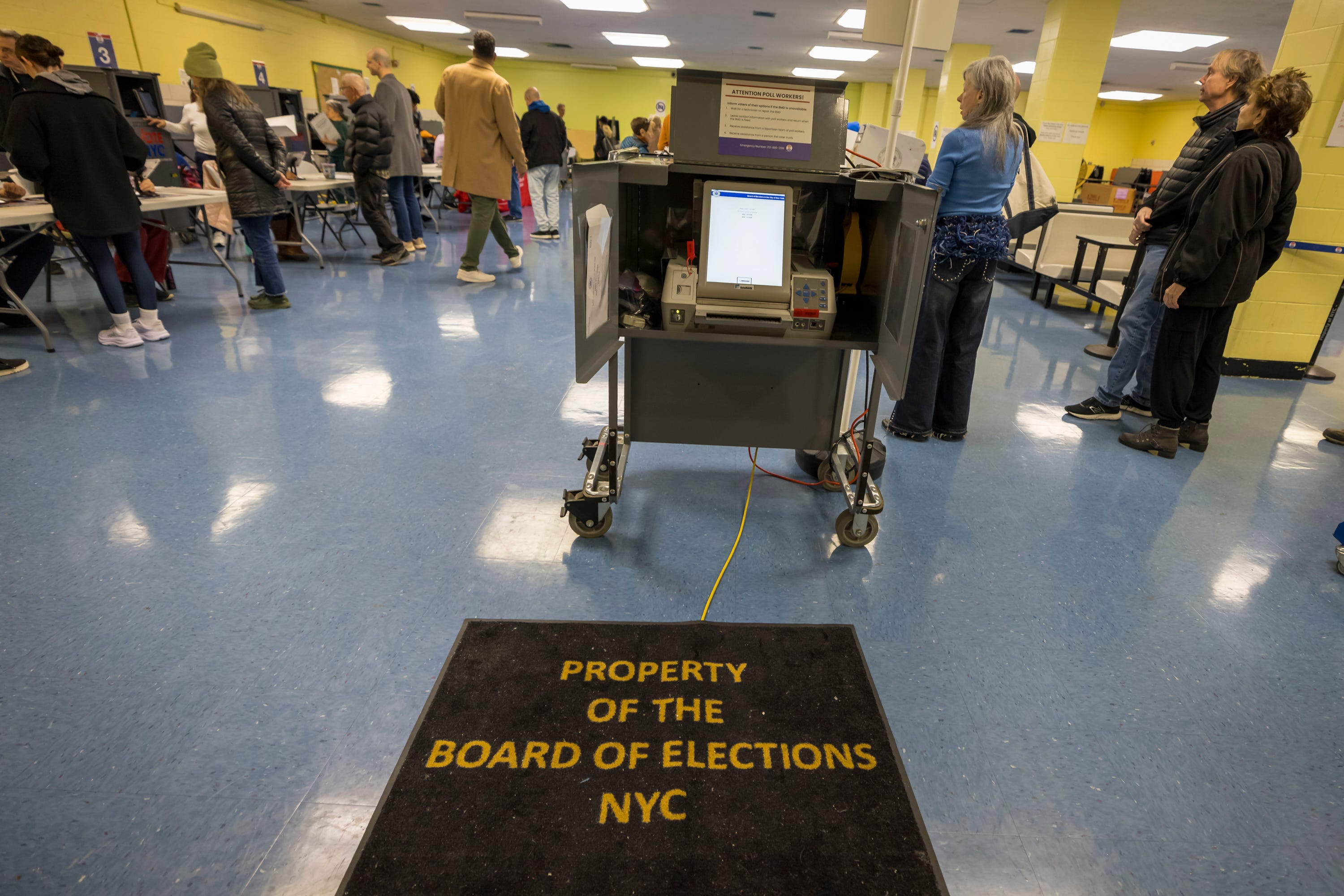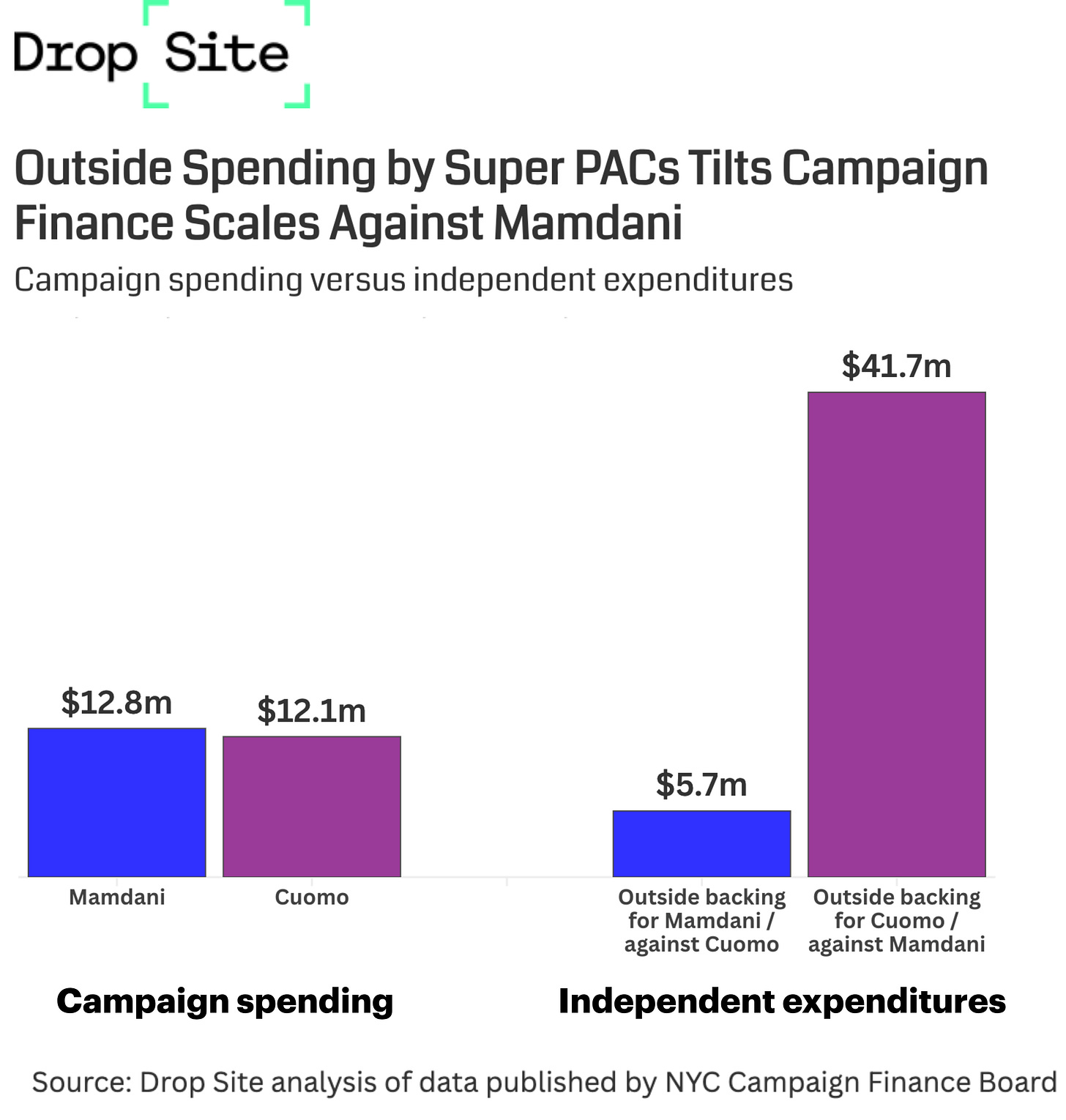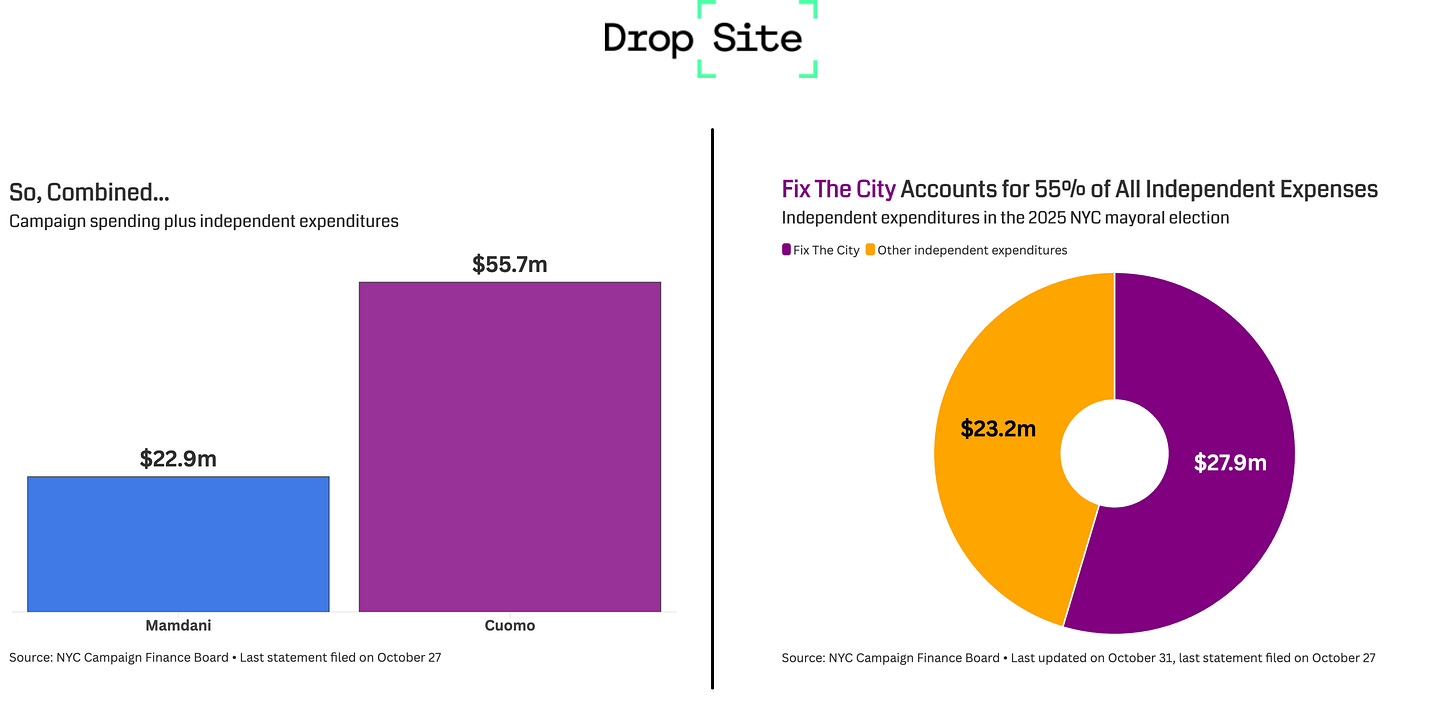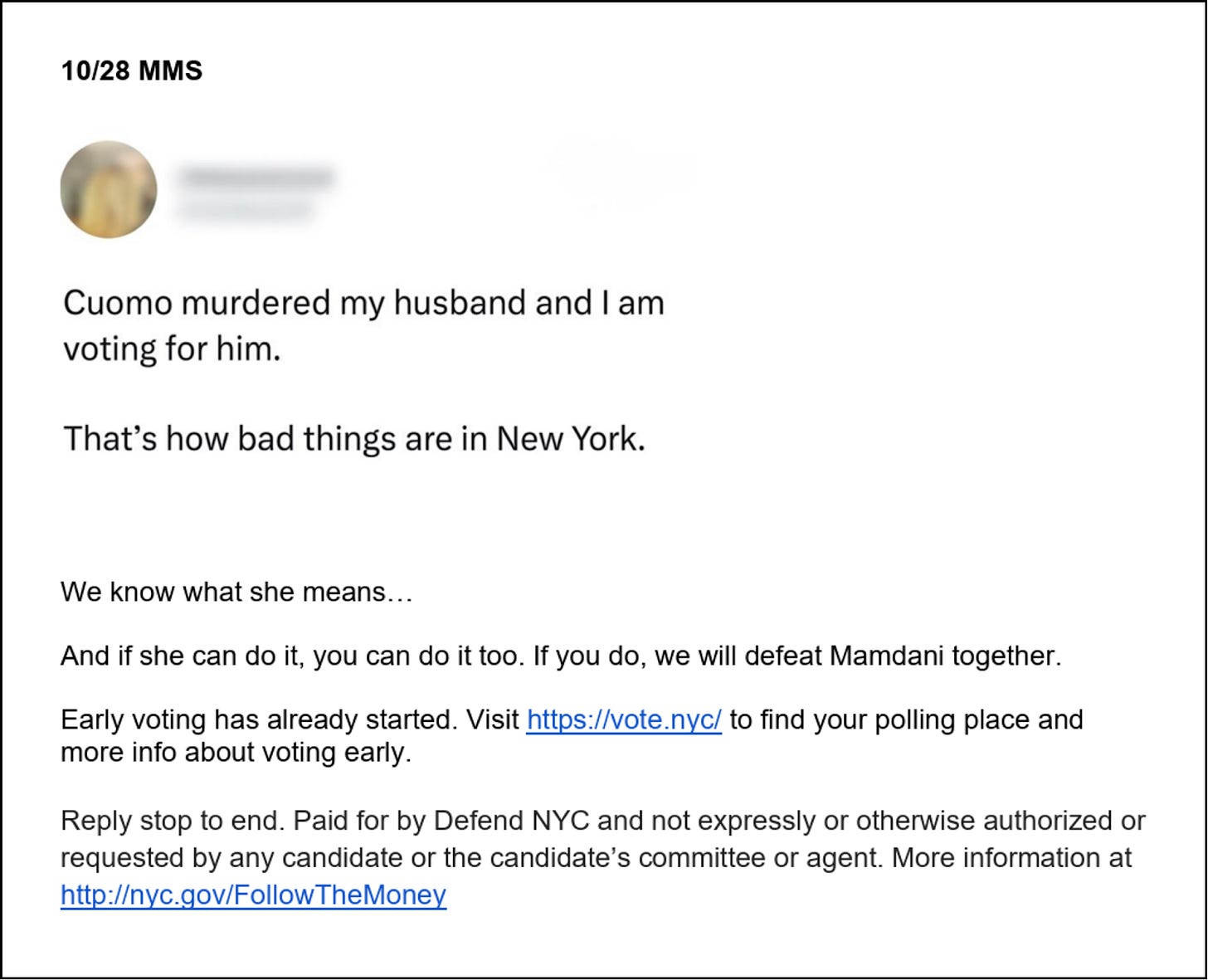Inside the White House, Secretary of State Marco Rubio cycled through a series of arguments aimed at persuading President Donald Trump to get behind regime change in Venezuela. The one that finally landed was drug trafficking. Venezuelan President Nicolás Maduro, Rubio argued, was killing Americans by trafficking fentanyl and cocaine into the country, which resonated with Trump’s long-established opposition to drug use.
Following that thread, we can report today that Trump asked his intelligence community to gather a list of drug-related targets inside Venezuela. The problem: Venezuela isn’t really a significant player in drug trafficking, so the list that came back mostly included targets inside Colombia and Mexico—the kind of frightening escalation where a pretext for U.S. aggression spirals into reckless imperial wars. Recall that Secretary of Defense Donald Rumsfeld argued shortly after the 9/11 attacks that the U.S. ought to go after Iraq not because it was responsible for taking down the Twin Towers, but because Iraq was a more “target-rich environment” than Afghanistan. Indeed, Colombia and Mexico have more drug-related targets, but does that mean the U.S. should bomb them? Drop Site’s new article on this can be found below.
The story below is reported with my Breaking Points colleague Saagar Enjeti, a co-host and co-founder of the program. The show airs Monday through Friday mornings, and you can subscribe here.
On Friday morning, we interviewed Maine Senate candidate Graham Platner in a wide-ranging conversation that probed his feelings on U.S. imperialism in the context of his own experience serving in combat and later doing private security for the ambassador in Kabul. We also covered Drop Site’s latest investigation into Jeffrey Epstein and the Mossad.
Drop Site contributor Meghnad Bose, meanwhile, reports a piece with journalist Biplob Das on how billionaire donors are making an expensive eleventh-hour effort aiming to prevent Zohran Mamdani from becoming the next mayor of New York City. In the final days, the approach of the Cuomo campaign’s backers has been unconventional in some ways: a major pro-Cuomo super PAC, funded by billionaire hedge fund manager Bill Ackman, is spending hundreds of thousands of dollars calling Cuomo “flawed,” and amplifying a tweet that starts by saying “Cuomo murdered my husband,” while asking New Yorkers to vote for him despite his drawbacks.A data analysis of campaign finances by Bose and Das shows that, as of today, independent expenditures backing Cuomo are more than seven times the amount of outside money put behind Mamdani. That is, in large part, because more than half of the total independent expenditures so far in the election have been made by Fix The City, a super PAC to which Michael Bloomberg has contributed close to $10 million. Read more about their findings in the article below.
As always, we can’t do this kind of reporting without your support. We now have more than 13,000 paying subscribers and have gotten small donations from more than 22,000 readers. But we need to pump those numbers up to make this news organization sustainable over the long haul. If you can upgrade to a paid subscription or make a one-time or recurring contribution, please do so this weekend.
—Ryan Grim
Secretary of State Marco Rubio looks on as President Donald Trump speaks with China’s President Xi Jinping at the Gimhae Air Base on October 30, 2025 (Photo by ANDREW CABALLERO-REYNOLDS/AFP via Getty Images).
U.S. Expanded Drug-Cartel Target List to Include Colombian Sites Amid Rubio Push for Venezuelan Regime Change
Trump has not made a decision on where or whether to launch strikes on land, with a diplomatic solution still possible.
Story by Ryan Grim and Saagar Enjeti
Secretary of State Marco Rubio has expanded his push for regime change in Venezuela to include cartel-linked targets in Colombia and Mexico, according to sources in the Trump administration and on Capitol Hill with knowledge of the unfolding situation.
Rubio’s drive toward war has been predicated on claims that Venezuelan President Nicolas Maduro is involved in the drug trade, including trafficking fentanyl to the U.S. But American intelligence officials have briefed President Donald Trump to the contrary, alerting him to the fact that little to no fentanyl flows from Venezuela to the United States.
At an Oval Office meeting in early October, Trump administration officials and top generals discussed escalating the pressure on Venezuela to go beyond the semi-regular attacks on boats in the Caribbean where fourteen boats have been struck, killing at least 57 people. The discussed plans include striking on land inside Venezuela, a source at the high-level gathering told Drop Site. The same October 2 meeting included a previously reported directive from President Trump, who dialed his special envoy Richard Grenell into the call, telling him to cut off diplomatic communications with Maduro. That order was previously reported by the New York Times.
In the wake of the meeting, the intelligence community was tasked with coming up with a more tangible list of targets on land. The problem, however, was that because of Venezuela’s lack of significant involvement in the drug trade, the sites were largely in Colombia and Mexico, though did include small sites along the Colombia-Venezuela border, a zone relatively not under state control and where coca-growing flourishes.
Sen. Lindsey Graham, R-S.C., was briefed by Secretary of War Pete Hegseth on the new list of hard targets inside Venezuela, Colombia, and Mexico in early October, and lobbied fellow senators on expanding the war to include drug-related sites in Colombia, a source with knowledge of his conversations told Drop Site.
Graham alluded to his understanding of the battle plans in a recent interview on CBS News Face the Nation. “We’re not gonna sit on the sidelines and watch boats full of drugs come into our country,” Graham said. “We’re gonna blow them up and kill the people who want to poison America. And we’re now gonna expand our operations, I think, to the land. So please be clear about what I’m saying today. President Donald Trump sees Venezuela and Colombia as direct threats to our country, because they house narcoterrorist organizations.”
“President Trump’s made a decision that Maduro, the leader of Venezuela, is an indicted drug trafficker—that it’s time for him to go, that Venezuela and Colombia have been safe havens for narco-terrorists for too long,” Graham continued. “President Trump told me yesterday that he plans to brief members of Congress when he gets back from Asia about future potential military operations against Venezuela and Colombia. So there will be a congressional briefing about a potential expanding from the sea to the land.”
The interviewer noted that Indiana Republican Sen. Todd Young had pushed back against this notion. “What exactly is the end game? Because you’re talking about regime change in Venezuela,” CBS’s Margaret Brennan said. “The President says this is about drug boats.”
“Well, I think the end game is to make sure that Venezuela and Colombia cannot be used to poison America,” Graham said, again adding Colombia to the conversation.
Trump on Friday said he was not planning to strike inside Venezuela, contradicting reports he was preparing military targets in Venezuela as well as his claims from last week, when he said, “the land is going to be next.”
The Pentagon held a GOP-only briefing on Wednesday, ostensibly to discuss the airstrikes on boats. But those present were also told about the new list of targets inside Colombia, spooking several Republicans worried about mission creep, according to sources familiar. Sen. Mike Rounds from South Dakota, who serves on the intel committee, was one such Republican. It was “unfortunate” Democrats were not allowed in the briefing, he told reporters, adding that he advised the White House those briefings should be bi-partisan. Rounds did not publicly mention that the briefing included a drawn up list of targets inside Colombia.
Asked about the briefing and the inclusion of targets inside Colombia, Pentagon Chief Spokesman Sean Parnell chided lawmakers for leaking. “This morning, the Department held several committee briefings to ensure continued transparency with lawmakers,” Parnell told Drop Site. “The Department is deeply concerned that members of Congress are making public statements regarding information received in a classified briefing. The Department considers any unauthorized disclosure of classified information as [a] serious breach of national security.”
A spokesperson for Rounds said, “On Wednesday, Senator Rounds was invited to a classified briefing regarding military strikes in the Caribbean. This briefing was held in response to a request. A representative from the White House called Senator Rounds on Thursday morning to inform him that, in addition to the nine briefings that have now been provided to Congress on the activities in the Caribbean, the administration is working to provide another classified briefing for members of the Senate Armed Services Committee, as was requested by a bipartisan group of Senators. Senator Rounds found Wednesday’s briefing satisfactory and informative, and he looks forward to his colleagues receiving additional information.” The Pentagon referred questions about the Oval Office meeting to the White House, which did not respond to a request for comment.
Drop Site is reader-supported.
Around the same time that the Pentagon and intelligence community were drawing up lists of targets inside Colombia and Mexico and striking boats in the Caribbean, Adm. Alvin Holsey, the SOUTHCOM commander, threatened to quit, and was subsequently pushed out. (A Pentagon spokesperson forwarded Hegseth’s statement at the time.)
This week, Lieutenant General JP McGee, who was director for strategy, plans, and policy (J-5) on the Joint Staff, took early retirement. As J-5 director, McGee reported directly to the chairman of the Joint Chiefs of Staff and was responsible for implementing policy. “I know he was uncomfortable with this,” said a source close to McGee. CNN reported that McGee was pushed out of his position amid widespread disagreements with Hegseth, including over Caribbean policy. Parnell rejected the claim. “General McGee is retiring, and the War Department is grateful for his service. CNN’s claims regarding his retirement are 100% fake news,” he said.
On Thursday, Pentagon lawyers declined to show up for a closed-door House-side briefing to discuss the legal rationale for the airstrikes on boats. Rep. Seth Moulton, D-Mass., said that the Pentagon had “pulled the lawyers,” but a source told Drop Site that their absence was driven more by their own concerns about the legality of the policy rather than the Pentagon insisting they not attend.
President Trump, meanwhile, has become convinced that Venezuela is not a source of fentanyl, driving a shift in recent strikes by the U.S. military to the Pacific ocean targeting alleged traffickers transiting from Colombia to Mexico, undercutting previous justifications for targeting Maduro. Those boats, according to intelligence assessments, may have been carrying cocaine, if anything. Colombian President Gustavo Petro said at least one of the strikes was a Colombian family fishing boat.
Beyond active U.S. military strikes, the Trump administration continues to fund a vast array of Venezuelan opposition groups, government documents reviewed by Drop Site reveal. That includes some $50 million dollars set aside in the latest appropriations bill for the next fiscal year for “democracy programs for Venezuela.”
Text of the appropriations bill that outlines how funds are allocated for “democracy programs for Venezuela.
These funds mirror the mountains of money sent to Venezuelan opposition groups amounting to at least $213 million in the last five years, per an internal USAID assessment reviewed by Drop Site.
The documents also note that the U.S. spent $18 million specifically in 2024 on Venezuelan opposition groups, including on the global travel of recent Nobel Peace Prize winner Maria Corina Machado. Machado has aligned herself with the Trump administration in recent months in a bid to see herself installed as the new leader of Venezuela, vocally supporting U.S.-backed regime change efforts and bolstering claims that Maduro is involved with drug trafficking and the criminal gang Tren De Aragua.
Despite disbanding USAID in February 2025, the Trump administration redirected some $400 million dollars in recent months to combat ideologically opposed governments in Venezuela, Cuba, and Nicaragua, according to the assessment.
The State Department referred questions on USAID to the Office of Management and Budget, which did not respond to a request for comment.
Maduro, in recent months, has been irked at accusations that he invaded the U.S. with migrants, noting to interlocutors that it was the U.S. that funded advertisements throughout Latin America newspapers encouraging Venezuelan migration. One such contract reviewed by Drop Site revealed a USAID contract beginning in September 2023 and ending in July 2024 with Colombian newspaper El País whose purpose was “to disseminate a new narrative about the Venezuelan migrant population.” The grant required the paper to “document and make visible success stories of migrants accessing the formal market, using formats and media regularly consulted by business groups.”
New Yorkers cast their ballots on the first day of in-person early voting for the next New York City mayor in the borough of Manhattan. The main candidates are Zohran Mamdani, Andrew M. Cuomo, and Curtis Sliwa. (Photo by Michael Nigro/Pacific Press/LightRocket via Getty Images)
The Money Versus Mamdani in the Final Stretch of NYC Mayoral Race
Unpacking the expensive eleventh-hour efforts by billionaires targeting Zohran Mamdani.
Story by Meghnad Bose and Biplob Das
Former Governor of New York and mayoral candidate Andrew Cuomo’s billionaire donors have launched an expensive eleventh-hour effort to disparage his electoral opponent, Zohran Mamdani, splurging on attack ads against the Democratic nominee. The late surge drove independent campaign expenses in this election over the $50 million mark on Thursday, with more than $12 million spent in the second half of October alone.
Independent expenses are those made by groups such as super PACs, and the groups are not supposed to coordinate with a candidate’s campaign. However, over the course of this NYC mayoral election, Cuomo’s campaign was hit with two separate penalties totalling $1.3 million for suspected coordination with Fix The City, a super PAC backing him.
Since early voting began on October 25, two billionaire-backed, anti-Mamdani super PACs—Fix The City and Defend NYC—have shelled out over $2.6 million in campaign ads, out of which nearly $2 million has been spent on attacking the Democratic nominee.
An analysis by Drop Site News shows that as of Thursday, independent expenses backing Cuomo were more than seven times the amount of money put behind Mamdani. Cuomo has exceeded Mamdani by a staggering $36 million in outside support. The difference highlights just how much independent expenses can skew the overall financial support behind a candidate.
Subtracting independent expenses, the Mamdani and Cuomo campaigns are on a more even financial footing, partly due to matching funds from the city. Mamdani’s campaign has had $17 million at its disposal, of which $13 million came from public funds, while Cuomo’s campaign has had $14 million available, of which $8 million was from public funds.
Yet, once the independent expenses are added, the total amount backing Cuomo or targeting Mamdani totals $56 million—close to two and a half times of the amount backing Mamdani or attacking Cuomo.
The largest super PAC supporting Cuomo, Fix The City, has alone spent $28 million, or 55% of all independent expenses in the election. The super PAC has already raised an additional $7.2 million, which is likely to be infused in the days leading up to polls closing on November 4.
The $51 million in independent expenses in this NYC mayoral race, with still a few days left for polls to close, is already 160% of the total independent spending amount in the 2021 election. In 2017, independent spending was less than $250k, and in 2013, the amount was just over $8 million.
Graphs depicting campaign spending versus independent expenditures between Zohran Mamdani and Andrew Cuomo in the New York City mayoral race (Graphs made by authors)
Graph depicting differences in total spending between Zohran Mamdani and Andrew Cuomo (left) and graph depicting amount Fix The City has spent on Andrew Cuomo’s campaign compared to total independent expenses (right) (Graphs made by authors)
Billionaires who support Cuomo and the messages they buy
Super PACs targeting Mamdani have been boosted in recent days by big-buck donations from several billionaires.
Michael Bloomberg, former NYC Mayor and billionaire, contributed $1.5 million to Fix The City on Wednesday, four days into early voting. This latest contribution took the total amount he has given to Fix The City, the biggest anti-Mamdani super PAC, to $9.8 million. In 2023-2024, Bloomberg was the single biggest individual contributor to Democrats, backing them with more than $60 million, according to an analysis of Federal Election Commission data by OpenSecrets.
On Tuesday, a week from Election Day, Ronald Lauder, former chairman of The Estée Lauder Companies, and his wife Jo Carole Lauder, contributed $500,000 to Fix The City**,** taking their total contributions towards the super PAC to $1.5 million. Ronald is also a Trump donor, and in March this year, he gave $5 million to a pro-Trump PAC named MAGA Inc. Ronald is also the longtime president of the World Jewish Congress. On its website, WJC states, “Since the October 7th terrorist attacks against Israel, we have intensified our efforts to defend the Jewish state in the hallways of the United Nations in New York to the United Nations Human Rights Council in Geneva, and around the globe, WJC advocates for Israel.” The WJC website calls Israel “a beacon of democracy and innovation in a volatile region” and says the country contributes to global progress in fields such as humanitarian aid.William P. Lauder, Ronald’s nephew and chair of the board of directors of The Estée Lauder Companies, has contributed $1 million to Fix The City. And William’s brother Gary, managing director of Lauder Partners, also contributed $25,000 to Fix The City.The four members of the Lauder family have spent over $2.5 million to target Mamdani and back Cuomo in the mayoral race.Joe Gebbia, cofounder of Airbnb, who was appointed by the Trump administration to the Department of Government Efficiency (DOGE) and as a chief design officer at the National Design Studio earlier this year, donated $1 million each to both Fix The City and Defend NYC on October 15.
Bill Ackman, the billionaire hedge fund manager of Pershing Square Capital and a prominent supporter of Donald Trump, contributed $1 million to the anti-Mamdani super PAC Defend NYC on October 14, and $250,000 to Fix The City on October 15 taking his total spending to $1.75 million.
In the lead-up to the mayoral primary in June, Mamdani had accused Fix The City of artificially lengthening and darkening his beard in a mailer attacking him. Mamdani, a Muslim candidate, had called the act “blatant Islamophobia.” Fix The City had spent nearly $9,000 on that mailer.
The latest infusion of big money in the general election has largely been spent on ads vilifying Mamdani on the airwaves and across social media. Some of these last-gasp efforts have taken an unconventional approach. After two days of early voting, a text message sent by Defend NYC, backed by billionaire hedge fund manager Bill Ackman, called Cuomo “flawed” but urged New Yorkers to vote for him “to stop communism from coming to NYC.” The following day, the same super PAC sent out a text which began with a tweet that said “Cuomo murdered my husband and I am voting for him. That’s how bad things are in New York”—one of two messages on which a combined million dollars was spent by Defend NYC. The message went on to say, “We know what she means… And if she can do it, you can do it too. If you do, we will defeat Mamdani together.”
A text message blast sent by Defend NYC on October 28, 2025.
On Monday, Defend NYC spent $250,000 on a text message blast that said “🚨President Trump weighed in! 🚨He said what we already know: This race is between Andrew Cuomo or Zohran Mamdani and Cuomo is the ONLY choice for mayor. Cuomo is flawed but we have to do our civic duty and vote for him to stop communism from coming to NYC.”
A day later, Fix The City spent $1.15 million on a television ad that called Mamdani’s ideas “radically dangerous”.
The spending patterns of outside groups backing Cuomo and Mamdani show two drastically different approaches: while groups backing Mamdani have spent an overwhelming proportion of their resources on positive messaging about his agenda, those backing Cuomo have spent close to half of their resources in attacking Mamdani.
Groups favorable to Mamdani spent 83% of their money on efforts listed as supporting him, and only 17% on expenses classified as opposing Cuomo, according to a Drop Site analysis of data shared by the New York City Campaign Finance Board. In stark contrast, independent spending favorable to Cuomo focused considerably on attacking Mamdani, with 42% of the funds, or around $18 million, spent on targeting the Democratic nominee. Only $1.8 million, or 3.5% of the independent expenditures, were categorized as either supporting or opposing Curtis Sliwa, the Republican nominee.
The latest polls show Mamdani ahead of Cuomo, with the Democratic nominee holding a double-digit lead. With less than a hundred hours to go before polls close on Tuesday, the flow of the big bucks into the election is unlikely to stop.
In the final stretch of this race, it’s money versus Mamdani.
From Drop Site News via this RSS feed


